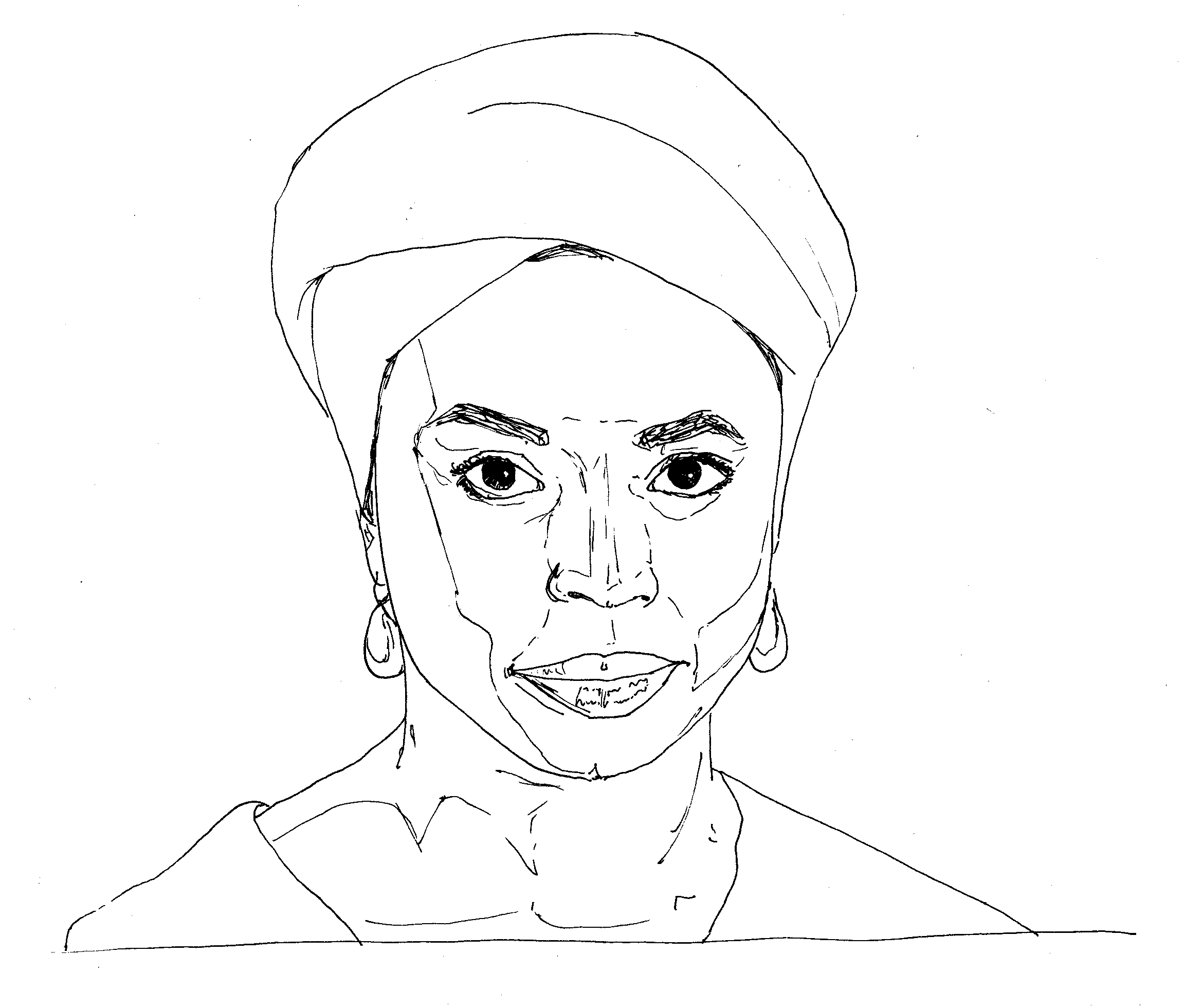Bridging the gap between African discourse and exhibition
April 20, 2018
 This
piece represents the opinion of the author
.
This
piece represents the opinion of the author
.
In the last few weeks I have felt more Nigerian than I had ever felt before on this campus. I catch myself in my Calculus class slipping into my Nigerian accent, and everyone jokingly responds “What was that?” The more I fall back to my niche, the more hypervisible I feel in little old Brunswick. On my way back from Connecticut after attending a Pan-African conference at Yale, I reflected on how muted African cultures are on campus despite the numbers of first-generation African immigrants. We have fine-tuned one representation of the African diaspora even in the context of language. Spaces outside of African Alliance are quiet about issues relevant to the continent, and it is frustrating. Bowdoin students don’t try to engage with the philosophies and culture unless it is presented in the form of a spectacle. This attitude has also pervaded the campus’s response to one of this year’s honorary degree recipient—Chimamanda Ngozi Adichie. I assume most of the campus glossed over her name, like another African name they dare not try to pronounce, while another subsection of campus who do know Adichie have focused on the controversy of the author’s comments regarding trans women.
Chimamanda Ngozi Adichie is a Nigerian-born author with notable recognitions and awards for her novels and short stories. Adichie’s work is inspired by her identity as a Nigerian cis woman. In an interview recently after publishing her short novel We Should All Be Feminists, Adichie was asked, “Are trans women women?” She responded saying, “My feeling is trans women are trans women … I don’t think it’s a good thing to talk about women’s issues being exactly the same as the issues of trans women because I don’t think that’s true.” Adichie received backlash because her argument siloes out trans women from womanhood and perpetuates a binary rather than an intersectional discussion about being a woman. In a Facebook post, she clarified that socialization is the epicenter of gender and how it is experienced across genders. She paralleled a cis woman’s experience as different from that of a trans woman who was assigned male at birth and transitioned years after. I recognize how Adichie’s comments portray a hierarchy of experiences that places the disempowerment of cis women over the existential agony and marginalization of trans people in our gendered society.
Before condemning Adichie’s work and credibility because of her controversial statements, I think it is important to analyze her cultural background. Many African communities are culturally insensitive to and intolerable of gender fluidity and trans-identities. Therefore, the language necessary to discuss these issues is not second nature. However, I believe Adichie raises a valuable point, which is the assumption that issues prevalent to trans women and cis women are exactly the same creates an illusion that is harmful for both parties. Feminism and womanhood should not be rigid constructs but rather umbrella terms for transfeminism, body positivity and other aspects prevalent to all women. I think voices like hers are necessary in furthering conversations about gender and the socialization of these constructs.
I will admit my bias and leniency towards Adichie because of my respect and appreciation for her role in changing the narrative of African women. Similar to Roxane Gay, Adichie also discusses feminist ideals often missing from mainstream conversation. The campus’s response to Gay was inspiring and indicative of a shift in the right direction; however, I was disappointed in our lack of response to Adichie. I do not intend to perpetuate competition between two black women but rather to highlight our apathetic behavior towards African discourse.
Our campus’s un-enthusiasm says two things. One is that we have idealized perceptions of artists—that they have no room for mistake or dialogue. The second is that we are not well-versed with the work of award-winning female author despite her relevance in redefining African literature. Bowdoin is no different from the rest of the Western world which exoticizes African culture and arts and misses opportunities for intellectual discourse as a result. I mean, our campus is happy to endorse a campaign that perpetuates the notion of a poor continent. However, programs and lectures by African intellectuals are poorly attended on campus, suggesting that cultural showcases are the preferred way to explore the continent. Africans comprise one of the most represented minority groups in higher academia and this is continually omitted in Bowdoin’s intellectual engagements. If you can comfortably walk past the collection box outside the fitness center that reads “Africa needs your shoes,” you are part of the problem.


Comments
Before submitting a comment, please review our comment policy. Some key points from the policy: